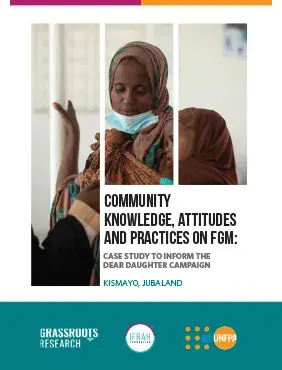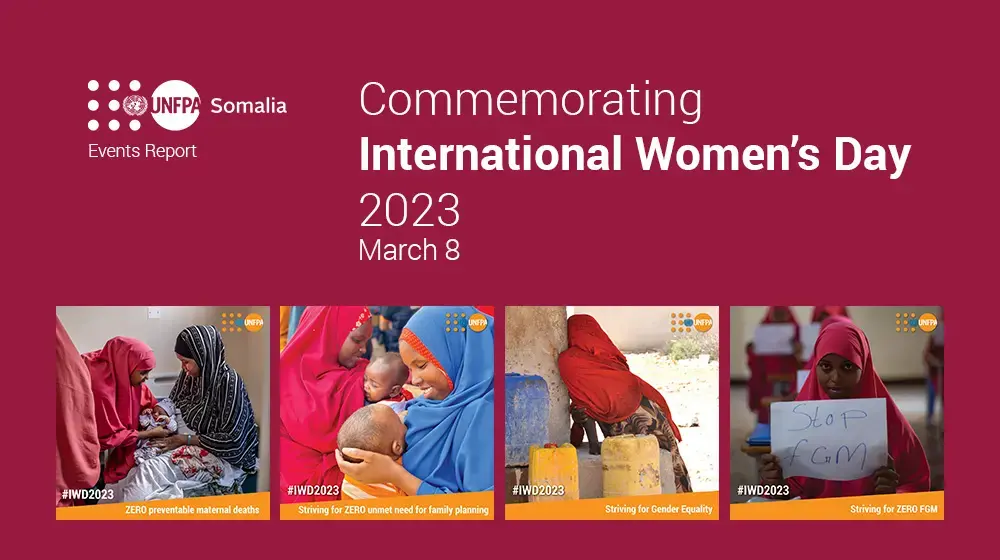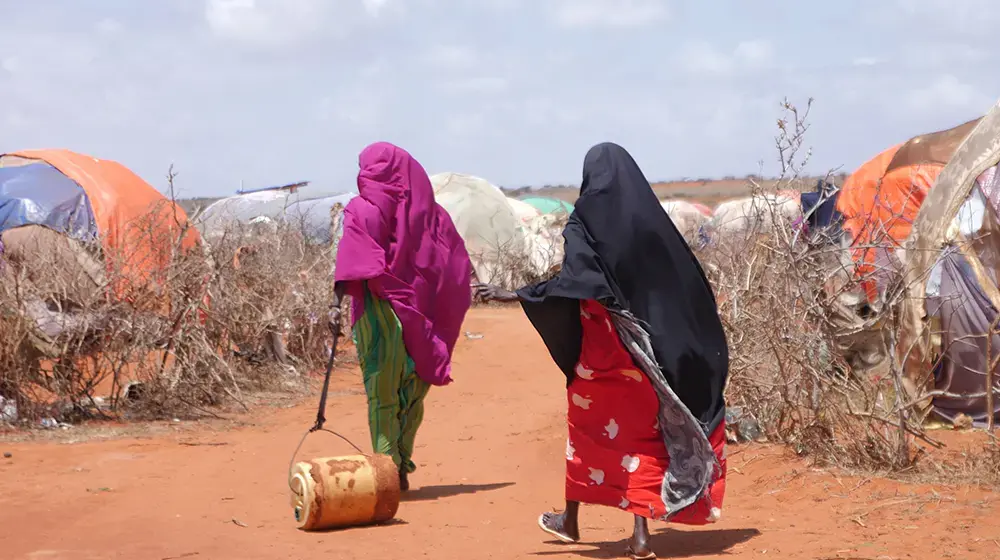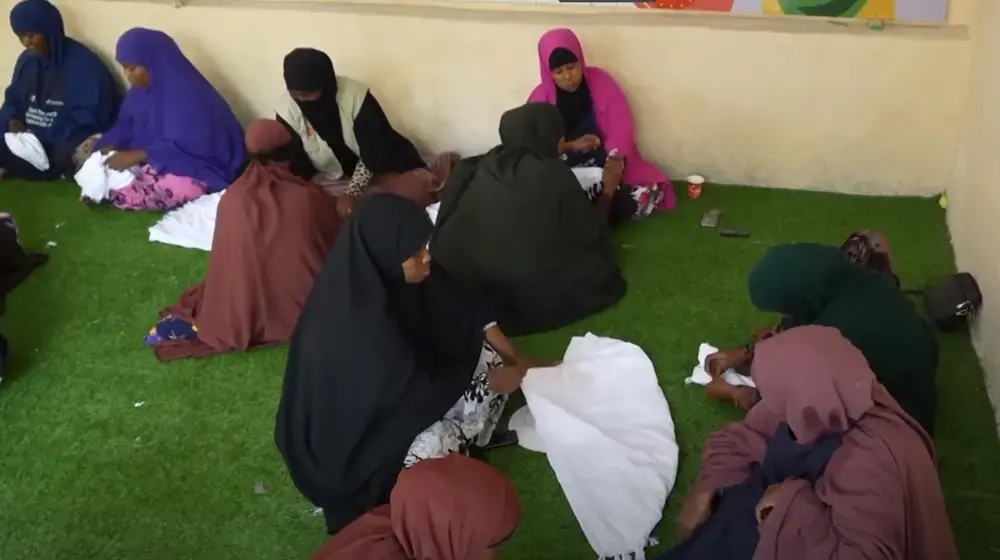Female Genital Mutilation (FGM) is a procedure in which the external genitalia of girls and women are partially or completely removed and/or infibulated for non-medical reasons. The World Health Organisation (WHO) classifies four different types of FGM in terms of the degree of tissue removed and infibulation. In Somalia, the main cuts used for FGM are the Pharaonic form, which is considered the more severe form and a type of infibulation, and the milder Sunnah form. FGM causes lifelong physical, psychological, and reproductive health problems for the woman, but practicing communities uphold the practice as a social norm and religious duty. Somalia, including Jubaland, has one of the highest prevalence rates of FGM in the world, affecting nearly 98% of girls and women. The practice is shifting towards a milder form and medicalisation of the practice, while the high prevalence rates remain unchanged.
The Mogadishu-based Ifrah Foundation is actively campaigning against any form of FGM in Somalia, targeting both policy-level stakeholders and practicing communities. The Ifrah Foundation’s Dear Daughter Campaign seeks to increase knowledge of the long-term consequences of FGM and contribute to long-term behavioural change toward the practice, and advocates for zero tolerance of FGM at the government level. The Dear Daughter Campaign was launched in Kismayo in December 2021, and this case study aims to inform the Ifrah Foundation of the current knowledge, attitudes, and practices with respect to FGM in Jubaland. The study employed a qualitative research design, which included five key informant interviews with key stakeholders (clan elders, religious leaders, and a district administration representative), and 14 focus group discussions with mothers, fathers, and youth from majority and minority clans, and traditional cutters.
The case study found that community members were aware of the consequences of practicing FGM, particularly the Pharaonic form. They considered the Pharaonic form as an extreme type of circumcision and promoted the Sunnah form instead. This finding is in line with the literature review conducted, where more people are practicing the Sunnah form instead of the Pharaonic form of FGM. The study also found the shift in perspectives on decision-making on when and what form of FGM daughters will undergo. Men are starting to be more involved by engaging in conversations with their wives on the type of cut the girls should undergo. However, ultimately, the mother still makes the decision. This brings up conversations around FGM no longer being solely a maternal duty but as a joint parental responsibility. Despite knowing the risks involved in undergoing FGM, study participants explained that the continued practice of FGM is driven by culture, tradition, and religion, ensuring social acceptance, purity and marriageability of daughters, and bringing honour to the family. Traditional cutters continue to perform circumcision on girls because it is also a source of income, although some of them have explicitly refused to perform the Pharaonic circumcision.
Study participants were aware of anti-FGM campaigns. Respondents were generally opposed to information on completely renouncing FGM, but favoured a less extreme form of circumcision. One of the religious leaders highlighted that campaigns may not be effective because they do not relate the information to practical and lived experiences of women and girls in the community, as well as the traditions that have been passed on from one generation to the next. Other gaps in anti-FGM campaigns include lack of resources to conduct campaigns, messages not being tailored to specific audiences such as mothers and traditional elders, and limited reach to rural and more traditional areas where FGM is likely prevalent.
Community Knowledge, Attitudes and Practices on FGM_Jubaland

Publisher
UNFPA Somalia
Number of pages
56
Author
Ifrah Foundation
Publication
Community Knowledge, Attitudes and Practices on FGM_Jubaland
Publication date
05 February 2023




